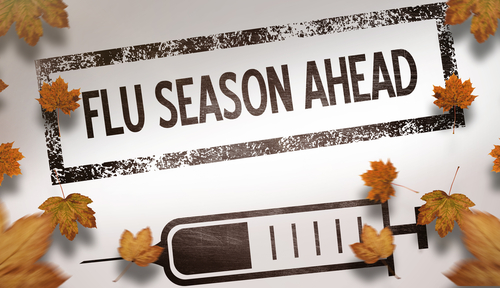More than 80,000 Americans died of the flu last winter, double the estimated annual average and the highest number in over a decade, according to health officials.
At least 180 children died from the flu, also a record high, and more than 900,000 people were hospitalized. Citing those numbers, health officials this year are once again urging everyone to get the flu vaccination.
“We had the worse season on record in Centra Care last year. We were twice as busy as the previous year,” said Dr. Timothy Hendrix, medical director of Florida Hospital Centra Care. “Influenza is a serious infection.”
When announcing last winter’s flu deaths at a news conference in September, U.S. Surgeon General Jerome Adams said, “Last season illustrated what every public health official knows — influenza can be serious in people of all ages, even in the healthiest children and adults.”
According to the CDC, 74 percent of the children who died from the flu last year were not vaccinated. About half of all the kids had no other health issues before getting the flu.
“It’s scary that half of those kids were totally healthy,” said Dr. Jeannie Moorjani, a pediatrician at Arnold Palmer Hospital for Children. “We want families to know that the flu is serious. We can’t predict who will have serious complications; that’s why we recommend the flu shot.”
Even though the flu vaccine doesn’t provide full protection against all the circulating viruses, it boosts the body’s immune system so even if you’re infected, your symptoms will be milder, Moorjani said.
“We can always tell which kids have gotten the vaccine and which ones haven’t,” she said. The kids who have had their flu shot have a lower fever and “they’re sick for two or three days instead of seven or eight days.”
Despite warnings, vaccination rates among children between 6 months to 17 years remain below the national goal of 80 percent and the numbers are even lower in Florida.
The state had the second-lowest vaccination rate in the nation — 46 percent — during the last flu season; the national average was 58 percent, according to the CDC.
Eight children died from the flu in Florida during the 2017-2018 flu season, surpassing the prior two years, according to the Florida Department of Health.
“When you get the flu shot, you’re protecting yourself and those around you,” said Moorjani.
The flu vaccine is recommended for everyone 6 months and older, except in rare cases when individuals can’t get the vaccine for medical reasons. Getting vaccinated is even more important for children, pregnant women, older adults, people who are extremely obese and individuals who have a weakened immune system.
Unlike the two previous seasons, the nasal-spray vaccine FluMist is recommended this year as an option, if it’s offered where you get your shot.
Hendrix and Moorjani said they still preferred the flu shot because it has a longer track record and provides protection against more strains.
The best time to get your flu shot this year is in October, according to the CDC, but doctors say it’s never too early or too late to get the shot.
On average, the flu season begins to peak in December in Florida, but the peak can be anywhere during the winter months and sometimes as early as November.
“Get your shot whenever you can,” said Hendrix.
The main circulating flu strain last season was H3N2, which is associated with more complications and deaths compared with other strains, but it’s too soon the tell which flu strains will be dominant this year or how long the season will last.
A recent study suggests that flu seasons may be longer in large cities but under the right conditions, the virus may spread more rapidly in smaller, less-populated areas.
“It’s difficult to predict what the flu is gonna do,” said Hendrix. “Will it be early or late? Will we have a bad season? The message from what we saw last year is that flu is a serious virus. And the best prevention is to get the flu shot.”

